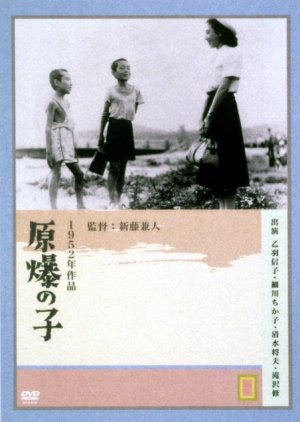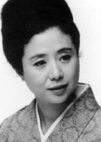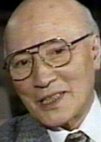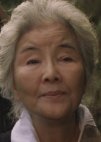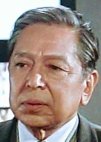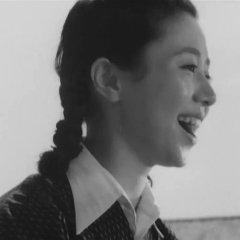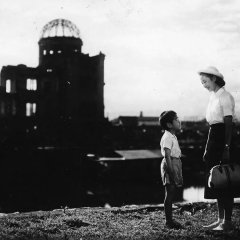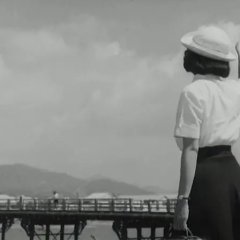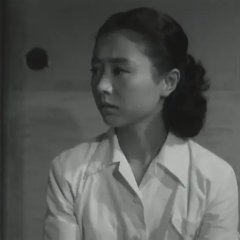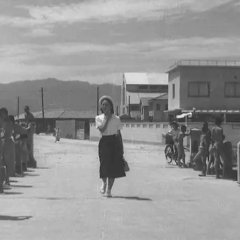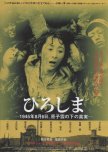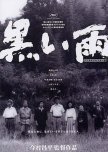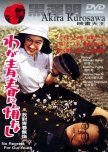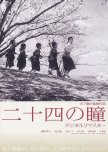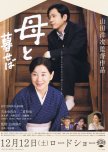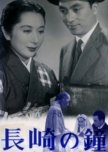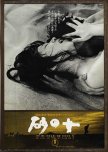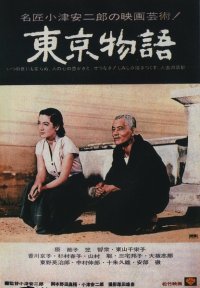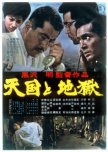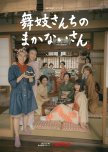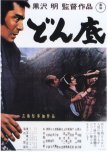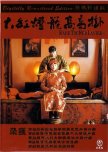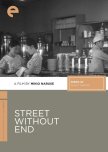- Français
- English
- magyar / magyar nyelv
- dansk
- Titre original: 原爆の子
- Aussi connu sous le nom de: Genbaku no ko
- Scénariste et Réalisateur: Kaneto Shindo, Shindo Kaneto
- Genres: Historique, Drame
Distribution et équipes
- Otowa Nobuko Rôle principal
- Takizawa OsamuIwakichi / "Iwa-san"Rôle Secondaire
- Kitabayashi TanieOtoyoRôle Secondaire
- Uno JukichiKojiRôle Secondaire
- Shimizu MasaoIshikawa Toshiaki [Takako's father]Rôle Secondaire
- Hosokawa ChikakoIshikawa Setsu [Takako's mother]Rôle Secondaire
Critiques

Cette critique peut contenir des spoilers
"War is hell"
Children of Hiroshima was made seven years after the bombing of Hiroshima, when the wounds were still fresh and the horror still a recent memory. The film showed a scarred city rebuilding, but rubble, blown-out buildings and stripped trees were a visible reminder of the terror that took place on August 6, 1945 at 8:15 a.m. Into this setting four years after the blast, Takako, a kindergarten teacher, visits her family's grave and seeks out the three surviving students from her old class.Takako escorts the audience on a tour of Hiroshima and her reunions give us a glimpse into the different ways people suffered after surviving the blast. She looks up the only three children still alive from her class four years ago. One child shines shoes to help his family, his mother works on a building while his father lies dying from radiation poisoning. A little girl saved by a priest during the bombing, lives in the church but has fallen ill with radiation poisoning. The last child is likely the luckiest. His parents were killed but he still has two older brothers and an older sister. After five years of waiting, the sister whose leg was badly damaged when she had been trapped under rubble is about to be married. Takako's teaching friend is sterile, yet opens her heart and helps other women have babies. And an old family friend, blinded and deeply scarred is reduced to begging on the street and resides in a shack outside of town. His grandson lives in an orphanage, one among many such children.
The story could feel manipulative at times, especially when Takako intruded into private family moments as if only through her eyes could the audience witness the other's misery. While I loved Ifukube Akira's Godzilla scores, his music here was heavy handed as if attempting to elicit an emotional response and felt out of place. I recognized his ponderous marches immediately.
The anti-war theme while important and still timely was bluntly reinforced with each succeeding encounter.
Director Shindo judiciously left out the debates over why the war was started, how many innocents suffered under the Japanese war hammer, and whether the bomb(s) should have even been dropped. I will follow his lead in those matters. But undeniably by showing the cost to people's lives, and the long road to healing, he did give ample examples of why "war is hell" and "the greatest evil". Perhaps not for the Japanese, but for people around the world, this film may have been the first time they'd seen the damage done in Hiroshima not only to the city but to the people. Both Shindo and actress Otowa Nobuko were from Hiroshima, making this film more personal for themselves. As he did with some of the people Takako came across, he also revealed hope for the future, a resilient and generous people, and life beginning anew out of the ruins.
In 1952, the occupation of Japan had just ended and the people were still reeling and learning how to cope and heal from a national tragedy along with post-war self-reflections. A variety of emotions played out in Children of Hiroshima-grief, resentment, hope, love, fear, and anger. When Takako heard a single plane flying above, the memory of the fateful day was triggered, a day with all the normal things people do under a clear blue sky, until a new horror was unleashed upon them. War is hell and the greatest cost is always for the innocents who pay the price.
7/27/23
Cet avis était-il utile?

